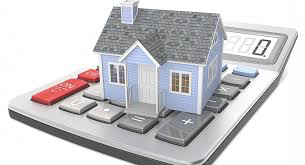As you probably know, residential real estate prices are way up in many parts of the country. Rental rates are also very high.
That’s why you should consider buying a new residence and converting your current residence into a rental property.

Why make this move? Because you can very possibly sell your rental property down the road for a much higher price!
But remember … this moneymaking strategy comes with some significant tax consequences. You’ll find out what they are and how to handle them when you read my new article titled Converting Your Residence into a Rental Property: Tax Issues.
Here are just some of the topics we’ll cover
when you read my new article
- Why you need to determine the property’s tax basis
- Why you can’t claim a tax loss when you sell a personal residence for less than your tax basis
- When your personal residence (now rental property) has a “normal tax basis”
- How the tax basis of a converted property for tax gain purposes is determined under the “normal rule”
- How normal basis for gain versus the basis for loss can create strange tax results when you sell converted property
- How landlord tax rules work
- What you can legally write off
- Why you should beware of the dreaded passive-loss rules
- What you should do if you have taxable income
- How to take advantage of taxpayer-friendly rules when you sell
- How to apply 1031 magic
- And much more!